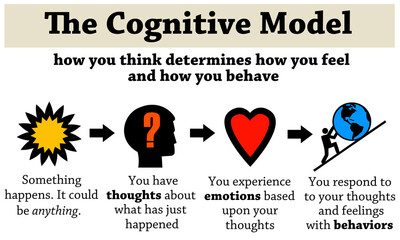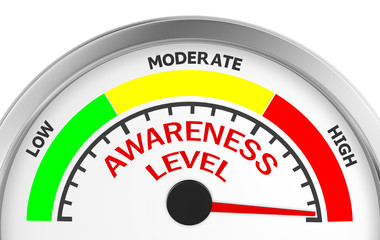You Are What You Think About
The profound truth behind this ancient wisdom is that our thoughts have an incredibly powerful influence on shaping our reality and our life experiences. The quality of our thoughts directly determines the quality of our lives.
This concept, often referred to as the "law of attraction," states that we attract into our lives what we focus our thoughts and attention on. Positive, empowering thoughts tend to manifest positive outcomes, while negative, limiting thoughts tend to manifest negative outcomes.
"What we think, we become." - Buddha
While this idea may seem overly simplistic or even a bit mystical, there is a strong scientific basis for understanding the intimate connection between our thoughts and our reality. Neurological research has shown that our brain is constantly rewiring itself based on our habitual thought patterns.
The neurons that fire together wire together, creating neural pathways that become the foundation for our beliefs, behaviors, and life experiences. In other words, we quite literally become what we think about. By consciously choosing to focus our mind on positive, uplifting thoughts, we can reshape our neural networks and transform our lives in profound ways.
The Power of Positive Thinking
One of the most well-known proponents of the power of positive thinking was Norman Vincent Peale, author of the best-selling book "The Power of Positive Thinking." Peale believed that by cultivating an attitude of optimism and faith, individuals could overcome obstacles, achieve their goals, and live happier, more fulfilling lives. 
Peale's ideas were largely influenced by the emerging field of positive psychology, which emphasizes the study of human strengths, well-being, and the factors that allow individuals and communities to thrive. Researchers in this field have found compelling evidence that positive thinking and a general orientation toward the glass being "half-full" rather than "half-empty" can have a dramatic impact on physical and mental health, relationships, career success, and overall life satisfaction.
For example, studies have shown that optimistic people are less likely to suffer from depression, have stronger immune systems, and tend to live longer than their more pessimistic counterparts. Positive thinking has also been linked to improved problem-solving skills, greater resilience in the face of adversity, and a heightened ability to bounce back from setbacks.
Conversely, negative thought patterns such as chronic worry, self-criticism, and catastrophizing have been shown to contribute to a host of physical and psychological issues, including increased stress, anxiety, and even chronic pain. 
The good news is that we all have the power to consciously shape our thought patterns and overcome negative thinking. Through practices like mindfulness meditation, cognitive-behavioral therapy, and positive self-talk, we can learn to identify and challenge our unhelpful thought patterns and replace them with more constructive, empowering ways of thinking.
The Interplay of Thoughts, Emotions, and Actions
Of course, the relationship between our thoughts, emotions, and behaviors is a reciprocal one. Our thoughts don't just impact our lives in isolation - they also shape how we feel and what we do.
Negative, self-limiting thoughts tend to give rise to painful emotions like anxiety, depression, and low self-worth. And those emotional states, in turn, often lead to self-sabotaging behaviors and a downward spiral of unfulfilling outcomes. Conversely, empowering, growth-oriented thoughts tend to cultivate positive emotions like joy, confidence, and inspiration - which then fuel more constructive actions and life-affirming results. 
That's why it's so important to become aware of the mental habits and thought patterns we're reinforcing on a daily basis. If we habitually entertain thoughts of failure, inadequacy, and victimhood, we're likely to experience chronic emotional distress and get stuck in unproductive behaviors. But if we intentionally shift our thinking to more empowering perspectives, we can interrupt that vicious cycle and start creating the life we truly want.
It's a gradual, iterative process, but the payoff is immense. As we become more mindful of our thoughts, we can start consciously choosing which ones to amplify and which ones to let go of. We can catch ourselves in negative thought loops and redirect our attention to a more positive, solution-focused mindset. And over time, as our mental habits evolve, we'll see a profound transformation in our emotions, our actions, and the trajectory of our lives.
Putting It All Into Practice
So how can we put all of this into practice in our daily lives? Here are a few key steps:
- Increase your self-awareness. Regularly pause throughout the day to check in with your internal thought processes. What are you telling yourself about yourself, about the world, and about the situations you're facing? Notice any unhelpful thought patterns or stories you may be reinforcing.

- Challenge your limiting beliefs. Identify the core beliefs that may be holding you back, and then consciously work to replace them with more empowering perspectives. This may involve journaling, visualization exercises, or conversations with trusted friends and mentors.
- Cultivate positive mental habits. Deliberately practice thought patterns like gratitude, growth mindset, and solution-focus. Set reminders, create rituals, and surround yourself with influences that support these more constructive ways of thinking.
- Manage your attention. Be intentional about where you direct your mental energy. When you catch yourself dwelling on problems or negativity, consciously shift your focus to more positive, productive thoughts. Use tools like morning journaling, mindfulness meditation, and limiting news/social media consumption to keep your mind clear and centered.
- Visualize your ideal future. Take time to vividly imagine the life you want to create - your goals, your relationships, your daily experiences. This reinforces the neural pathways associated with those desired outcomes, making them feel more real and attainable.
- Surround yourself with positive influences. Be selective about the people, media, and environments you expose yourself to on a regular basis. Seek out mentors, communities, and resources that uplift and inspire you, rather than those that trigger unhelpful thought patterns.
- Take consistent action. At the end of the day, our thoughts are powerful, but they only matter insofar as they drive us to take productive action. Make a habit of translating your empowering thoughts into concrete steps, no matter how small. Over time, these compounding actions will bring your vision to life.
Ultimately, the principle of "you are what you think about" is a profound invitation to take radical responsibility for the quality of our minds. While we can't always control the initial thoughts that arise, we do have the power to decide which ones we entertain, amplify, and act upon.
By becoming more mindful of our internal mental landscape and intentionally cultivating empowering thought patterns, we can unlock an incredible source of personal transformation and growth. Our beliefs, habits, and the focus of our attention become the building blocks of our character, our capabilities, and the experiences we create in the world.
It's not always easy, and it requires ongoing practice and self-awareness. But the payoff is immense - the ability to consciously shape our lives in alignment with our deepest values and highest aspirations. So let's embrace this powerful truth, and get to work upgrading the operating system of our minds. The future we desire is well within our reach.




























